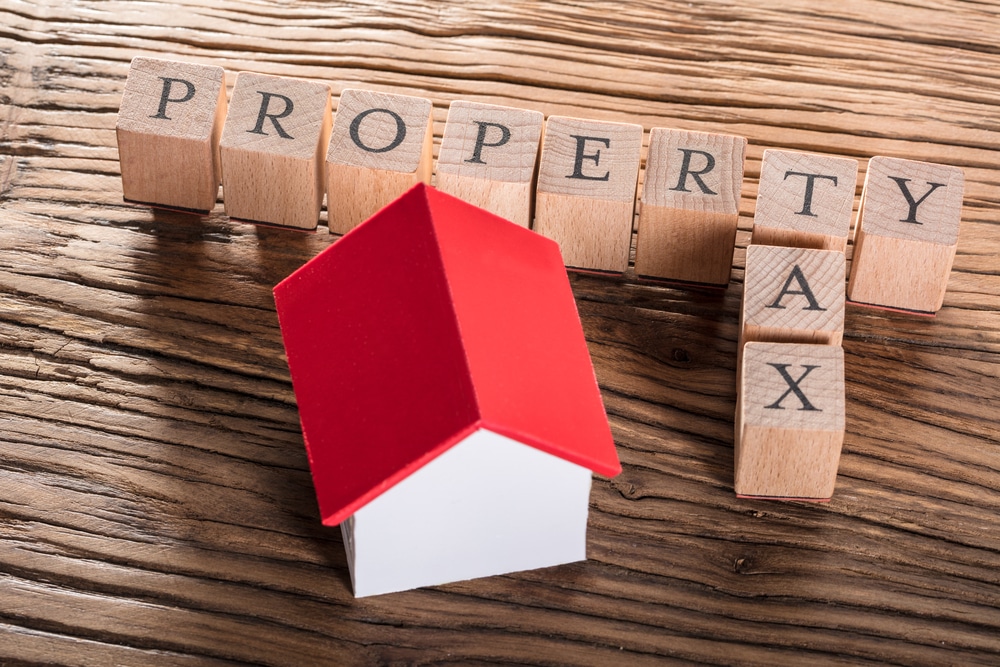Importance of Knowing Property Tax During a Home Purchase

There are a few important details that come with any kind of home purchase, including certain costs that are important to be aware of. One great example here, and also one that some buyers aren’t quite familiar enough with as they move forward toward homeownership, is the realm of property tax.
At Altius Mortgage and our partners with Mortgage Ogden, our loan officers are happy to assist you with numerous mortgage and homebuying needs, from helping you obtain a great mortgage rate and sign up for the ideal mortgage program to assistance with many of your possible homebuying costs. What exactly is property tax, and why is knowing it during your homebuying process important? Here’s a basic primer.
What is Property Tax?
As the name implies, property tax refers to a tax that is placed on a property – in this case, your home. This is generally levied by state or local governments as a way to generate revenue, and it’s also used in order to help support various public services and needs within the community.
Property taxes can be paid annually or semi-annually, and they’re typically factored into your mortgage payment each month. Your lender will hold onto the money and pay the taxes on your behalf when they come due, and this is all rolled into your escrow account.
Why is knowing your property tax important during this process? There are a few reasons, which we’ll discuss in our next few sections.
Escrow and Earnest Money
During many homebuying situations, escrow and earnest money are two common terms that you’ll hear. Escrow is basically money that is set aside in order to help pay for things like property taxes, home insurance, and other related costs. This is all determined when you’re getting pre-approved for a mortgage loan, and it’s based on estimations of what those annual costs will be.
Earnest money, on the other hand, is a deposit that is made when you make an offer on a home. This shows that you’re serious about the purchase, and it typically ranges from 1-3% of the total purchase price. In some cases, this earnest money can be used toward your down payment; in others, it may be credited back to you at closing.
A couple ways property taxes relate to these areas:
- How earnest money is calculated: In many cases, property taxes in the local area will be used to help calculate your earnest money deposit. This often allows would-be buyers to do their own calculations and get a better understanding of how much money they’ll need to bring to the table when making an offer on a home.
- Where escrow money goes: In most cases, earnest money or other forms of escrowed funds will go toward your first few months of property taxes if your offer is accepted and the home purchase is successfully negotiated.
Monthly Mortgage Payments
Your monthly mortgage payment contains more elements than just the balance of your loan, and property taxes are one important thing that is often included.
PITI is one acronym you’ve probably seen before, and it stands for principal, interest, taxes, and insurance. This includes all of the different aspects of your monthly mortgage payment, from the amount you’re paying down on your loan to the insurance premium for your home.
In fact, even once you’ve paid off your entire mortgage years down the line, you’ll still need to keep paying property taxes in order to maintain ownership of your home.
New Tax Assessments
As you move forward with homeownership, it’s possible that a reassessment of your home’s value could occur. In some cases, this is done every few years in order to ensure that the property taxes you’re paying are accurate and up-to-date.
While a reassessment could lead to an increase or decrease in your property taxes, it’s more likely that they will go up rather than down. Knowing this in advance can help you prepare your budget and account for any changes that may come up down the line.
A common time for such reassessments: When the home is being sold. This is because the sale price is generally used as the new baseline value for property taxes.
Appealing Your Property Taxes
If you believe that your home has been incorrectly assessed, you do have the right to appeal the decision. This process can be complex, and it’s often best to work with a professional who understands the ins and outs of such appeals.
Impact of Location on Property Tax
One additional note before we sign off for the day: The location of your home may play a major role in your property taxes. Specifically, what’s known as your “mill rate” will be based on the municipality and school district in which your home is located.
The mill rate is a way of determining how much property tax you’ll need to pay each year, and it’s expressed as $1 per $1,000 of assessed value. So, if your home is assessed at $200,000 and the mill rate in your municipality is 20 mills, you would owe $4,000 in property taxes each year.
It’s important to be aware of these details as you’re searching for a home, as the cost of property taxes can vary significantly from one location to another.
For more on how property taxes factor into your homebuying and homeownership needs, or to learn about any of our mortgage rates or home loan services, speak to the staff at Altius Mortgage today.